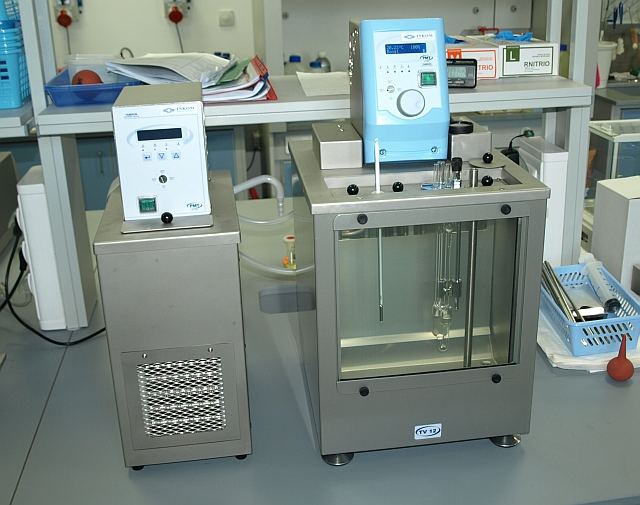
Calculation method
Objects: liquid fuels and biofuels, other petroleum products, multifunctional additives for fuels
The viscosity index is a widely used and accepted measure of the variation in kinematic viscosity due to changes in the temperature of a petroleum product between 40 and 100 °C.
A higher viscosity index indicates a smaller decrease in kinematic viscosity with increasing temperature of the lubricant.
The viscosity index is used in practice as a single number indicating temperature dependence of kinematic viscosity. Viscosity Index is sometimes used to characterize base oils for purposes of establishing engine testing requirements for engine oil performance categories.
This practice covers the procedures for calculating the viscosity index of petroleum products, such as lubricating oils, and related materials from their kinematic viscosities at 40 and 100°C.
Summary of Test Method: The viscosity index of an oil is calculated from its kinematic viscosities at 40 and 100°C determined according to EN ISO 3104.





